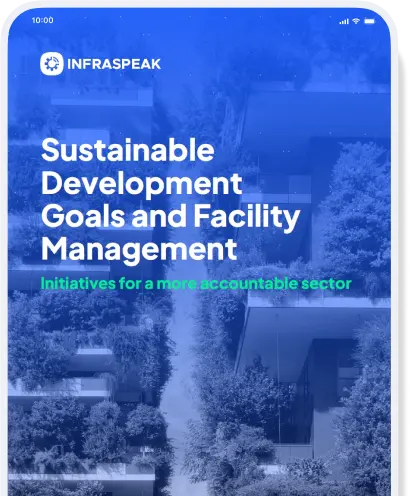The ultimate success of a hotel is dependent on ensuring that all is in order to provide the best possible experience to its customers. This includes ensuring all facilities are of quality and in top condition, whilst also performing maintenance tasks to ensure that everything works smoothly behind the scenes.
We have listed below some tips on how to best execute hotel maintenance duties.
1. Tracking assets
Technicians need to be aware of all existing assets and their locations to ensure an effective maintenance programme. They also need to be able to easily and quickly access detailed information on equipment ranging from the date of installation to the date of the last reparation or replacement. Some maintenance software solutions use NFC tags which allow for the team to identify, collect and record information on all assets. NFC tags also allow users to generate detailed reports, maintain updated data related to purchase, security and check regulatory compliance all through a single mobile application.
2. Optimising failure reporting
As soon as a failure is detected, it must be quickly reported and resolved. As well as the maintenance team, other staff must also be ably trained to record any malfunctions found in the hotel.
For instance, let’s imagine a scenario where a customer mentions a problem to reception. By using maintenance management software such as Infraspeak, technicians can instantly report failures through the mobile application by reading the NFC tags associated with the reported problem and by relating the type of failure to the equipment or location. Through the Infraspeak Direct™ app, all housekeeping staff and customers can quickly register a failure either on the web or the mobile version of the platform.
3. Improving response time
After a failure is detected and reported, it must be resolved as soon as possible to minimise the asset’s period of inactivity. To ensure that there are no delays in addressing these issues, technicians need to have a good understanding of their pending tasks and to know which tasks have been identified as being a high priority. Furthermore, it is important to maintain a good stock of materials to ensure there are no time-consuming waits for the delivery of goods.
4. Investing in preventive maintenance
Preventive maintenance is designed so that all pieces of equipment work in top condition for much longer and have a better performance. The main goal is to schedule periodic monitoring of equipment to make detailed measurements, which guarantee the fullness of operations. Again, using NFC tags can be useful to track assets and plan maintenance efficiently.
5. Investing in training
For the hotel maintenance team to ensure all tasks are fully completed as well as possible, it is essential to invest in personal and professional training for your staff. Besides the standard predefined hours of coaching, it is important to invest in specialised courses or training that address current and industry-related topics.
Some examples in the hotel industry include environmental sustainability, tourism and hotel legislation, organisation and management of maintenance, air conditioning and refrigeration, maintenance management of buildings, among others. Staff education/training is essential to optimise responses to customers and market demands.

6. Taking advantage of technology
Embracing technology and using it in your favour is a great way to boost the efficiency of operations and to help you improve hotel maintenance duties. With the support of hotel maintenance software it is possible to improve communication (between technicians, staff, managers, and clients), schedule and plan tasks, optimise stocks, improve the reliability of your decisions and increase productivity.

